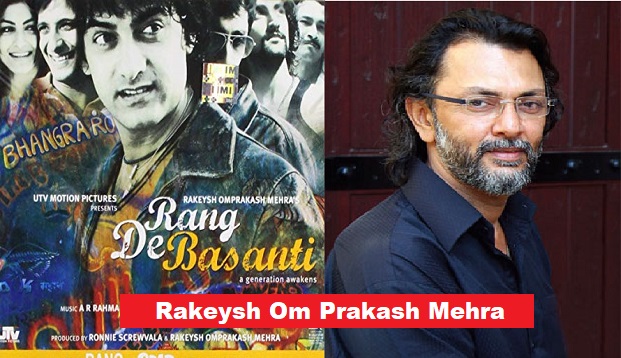After the Aurangabad Sessions Court granted relief to film producer Rohinton Screwvala, the Magistrate court in Aurangabad has discharged filmmaker Rakeysh Omprakash Mehra in a copyright infringement criminal case.
A writer named Mustaq Mohsin had claimed that he had discussed a script titled Inquilab with Rakeysh who in turn used the same for his film Rang de Basanti which was released in 2006.
Mustaq Mohsin had filed the complaint before the court and issued process against Rakeysh and Rohinton Screwvala, the film's producer. However, during the course of the hearing, Rakeysh moved an application for discharge on the ground that no offence is made to issue process. The filmmaker argued that Mohsin's complaint did not make out ingredients of the offence and suppressed material facts misleading the court to obtain order of issue process.
Rakeysh Mehra also said that the script of Rang de Basanti was unique, original and altogether different from the alleged script of Inquilab. He said that under Copyright Act, there is no bar to produce identical result by using same idea, as there is no copyright for idea. He also alleged that the script is not copyright protected, nor was it published. Entire dispute is civil in nature, stressed Rakeysh, while stating that 'the intention to prosecute is to gain unwanted publicity by misuse of police and judicial machineries'.
Earlier, Rohinton Screwvala had moved the Aurangabad Sessions Court which had set aside the Magistrate court order of issuing process. The sessions court had observed that the 'criminal proceeding itself was not tenable as the story (Inquilab) was not registered' and that there was no 'prima facie material to prove the offenses punishable under the Copyright Act'.
While hearing Rakeysh Mehra's discharge application, Magistrate VH Khedkar relied upon the order of the Sessions Court. The judge noted that the revision application had been allowed but not by 'distinguishing the role of accused no. 2 (Screwvala) from present accused (Mehra)' and that order had not been challenged in a high court. Hence, the observations made for the present proceeding by a Sessions Court were binding on the lower court.
The Magistrate said, "In such circumstance, if the charge is framed, it will be groundless charge. Therefore, it is proper to discharge accused No. 2 (Mehra) vide Section 245(2) of the Code of Criminal Procedure."
(Only the headline and picture of this report may have been reworked by the LatestLaws staff; the rest of the content is auto-generated from a syndicated feed.)
Source Link
Picture Source :


























